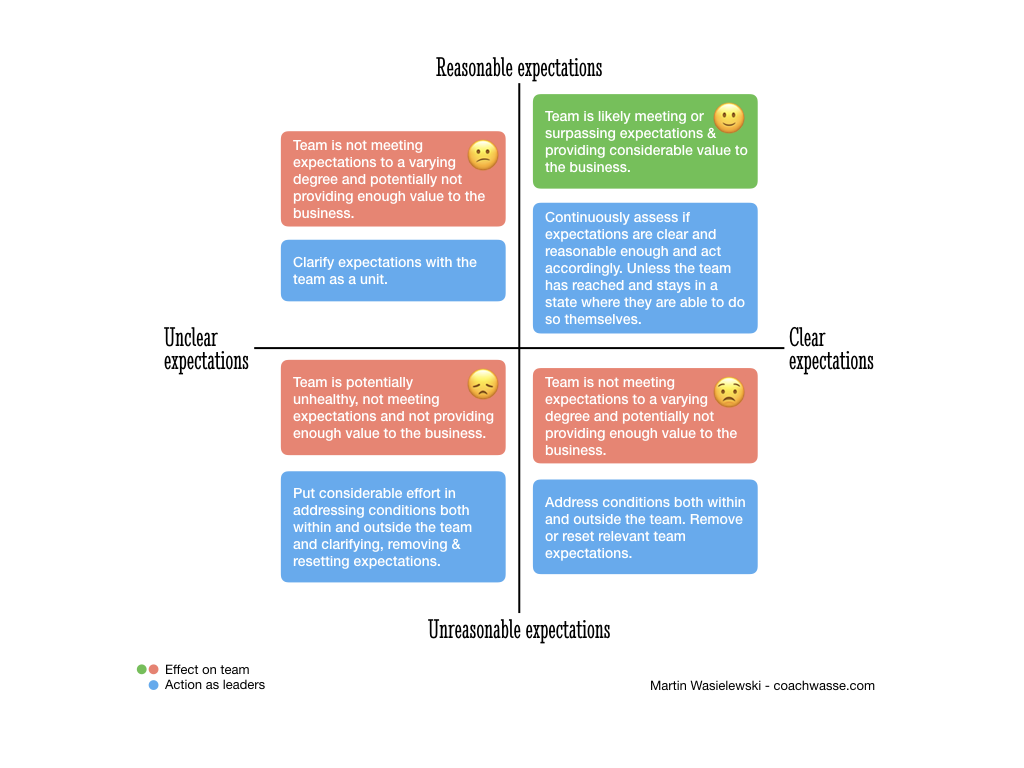Relatively commonly I find myself in situations where managers and leaders (the “leaders”), i.e. people in roles with both formal and informal authority, state that some teams don’t meet expectations. Specifically expectations on their performance as a team and their collective behaviour. The leaders have commonly been unclear to why that is and what can be done about it. In all cases I’ve found two reasons for a team failing to meet expectations. It’s either a combination of the two or one of them.
• Expectations are unclear
• Expectations are unreasonable
Unclear Expectations
Leaders main purpose of existence is to guide and support teams becoming high performing. This includes clarifying to the team what the business expects of them. If expectations are unclear leaders need to lean in and provide clarity.
The most effective way to find out if expectations are clear enough is to ask the team: “What does [insert your company name] expect of you as a team?”. If you find the answers well articulated, clear and complete you can assume expectations are clear enough for the team. If not you can assume they are either potentially or absolutely not clear enough.
When expectations need to be clarified leaders should spend time primarily providing clarity to the team as a unit and secondary to individuals if needed. The most effective way to do so is to have a face to face conversation with the entire team, where you clarify necessary expectations. What leader is/leaders are the most appropriate to have that conversation depends on what organisational structure and legacy you have. In my cases it’s mainly been a combination of the product owner, people manager or agile coach.
Unreasonable Expectations
Equally important for leaders setting clear expectations on the team as a unit is for the expectations to be reasonable. A few examples when they are unreasonable:
- They’ve been asked to solve problems without asking for help when they depended on support from someone or something.
- A newly formed team with relative inexperience is expected to perform quickly without any guidance.
- The individuals are not actually a team
If it’s unclear whether expectations are reasonable or not leaders course of action should preferably be to ask the team as a unit “What expectations on you as a team are unreasonable?” or “What expectations on you as a team are difficult to meet and why?”. The most important thing leaders do in this situation is to listen to the team’s organisational challenges. They will provide key insights to assess whether expectations are unreasonable. When they are leaders should spend time addressing them by removing or resetting them, or changing team or organisational conditions to make them reasonable. E.g. making sure a team gets the help they need to be able to solve relevant business challenges, providing guidance to inexperienced teams and expecting a pseudo-team to collaborate less than a team.
Setting a team up for success
Setting reasonable team expectations and making them clear enough is a key foundation in setting a team up for success, which is a fundamental part of the leaders purpose. The following picture will hopefully help you on your journey of setting teams up for success.
